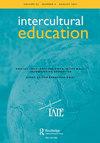Overview of special issue
IF 0.8
Q3 EDUCATION & EDUCATIONAL RESEARCH
引用次数: 0
Abstract
Early school leaving (ESL) is a serious challenge for education authorities in many European countries. The post-pandemic period has only exacerbated this challenge that affects both the lives of the students and society in general. Not the least of these, of course, is the challenge to identify good practices which has been the focus of the Erasmus+ project (2019-1-ES01-KA201-065362) ‘Promoting Inclusion to Combat Early School Leaving (PICESL)’. Especially noteworthy is the role of mapping practices preventing disengagement resulting in ESL. Education is key to the eradication of inequalities and schools together with parent and communities must work to increase measures to ameliorate ESL; this must be at the forefront of everything they do. While much has been written about ESL in the post-pandemic period, one must remember that the challenges of COVID-19 only highlighted the ongoing challenges and shortcomings of school systems even as there is every reason to honour how specific institutions confronted an unprecedented crisis. Unique about this special issue is that it would provide an ‘international’ point of view by including articles from different regions around the world seeking to contribute to prevent disengagement and leaving from education and training and to explore the measures for educational reintegration. The first article presents a study which investigates Spanish teachers’ perspectives of school dropout factors and the perceived inspiring practices to prevent ESL. Teachers described mainly experiences at the instructional and relational level (micro level) and appeared to be less cognisant of the institutional/systemic level of prevention of ESL (macro level). The article argues the need to execute practices addressed to all students rather than special programmes for special students (migrants, gypsies, students with special capacities, etc.). The second article focuses on practices implementable at the classroom level, exemplify cognitive, behavioural, and socio-emotional engagement, and foster school-family relationships, and which can be adapted by teachers and parents. The work underlines the ways in which students, parents, teachers, and administrators can best use these practices pro-actively to support students to continue engaged in learning.特刊综述
早退(ESL)是许多欧洲国家教育当局面临的严峻挑战。大流行后时期只会加剧这一挑战,这一挑战既影响到学生的生活,也影响到整个社会。当然,其中最重要的是确定良好做法的挑战,这一直是伊拉斯谟+项目(2019-1-ES01-KA201-065362)“促进包容,打击早退(PICESL)”的重点。特别值得注意的是,映射实践的作用是防止脱离接触导致ESL。教育是消除不平等的关键,学校、家长和社区必须共同努力,增加改善ESL的措施;这必须是他们一切工作的首要任务。虽然在大流行后的时期有很多关于ESL的文章,但我们必须记住,COVID-19的挑战只突出了学校系统的持续挑战和缺点,尽管有充分的理由尊重特定机构如何面对前所未有的危机。这期特刊的独特之处在于,它将提供一个“国际”观点,包括来自世界各地不同地区的文章,力求为防止脱离接触和脱离教育和培训作出贡献,并探讨重新融入教育的措施。第一篇文章提出了一项研究,调查了西班牙语教师对辍学因素的看法,以及他们认为的防止ESL的激励措施。教师主要描述了教学和关系层面(微观层面)的经验,似乎对预防ESL的制度/系统层面(宏观层面)的认识较少。文章认为,有必要针对所有学生实施实践,而不是针对特殊学生(移民、吉普赛人、有特殊能力的学生等)的特殊方案。第二篇文章侧重于在课堂层面实施的实践,例如认知、行为和社会情感参与,以及促进学校-家庭关系,这些可以被教师和家长适应。这项工作强调了学生、家长、教师和管理人员可以最好地积极利用这些实践来支持学生继续参与学习的方式。
本文章由计算机程序翻译,如有差异,请以英文原文为准。
求助全文
约1分钟内获得全文
求助全文
来源期刊

Intercultural Education
EDUCATION & EDUCATIONAL RESEARCH-
CiteScore
2.30
自引率
8.30%
发文量
36
期刊介绍:
Intercultural Education is a global forum for the analysis of issues dealing with education in plural societies. It provides educational professionals with the knowledge and information that can assist them in contributing to the critical analysis and the implementation of intercultural education. Topics covered include: terminological issues, education and multicultural society today, intercultural communication, human rights and anti-racist education, pluralism and diversity in a democratic frame work, pluralism in post-communist and in post-colonial countries, migration and indigenous minority issues, refugee issues, language policy issues, curriculum and classroom organisation, and school development.
 求助内容:
求助内容: 应助结果提醒方式:
应助结果提醒方式:


